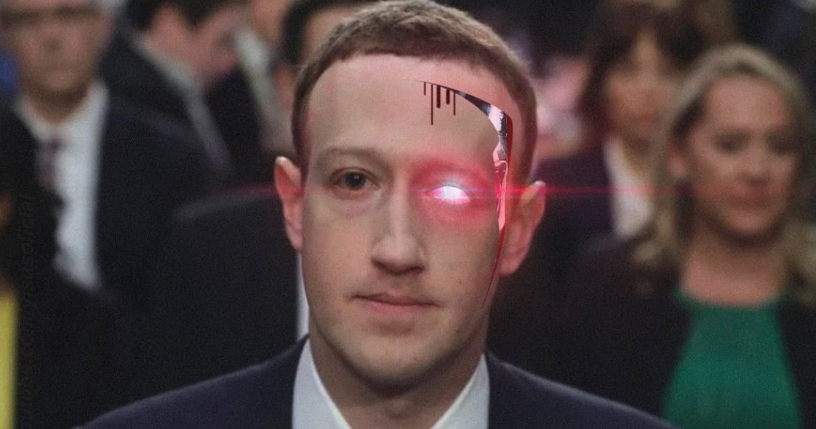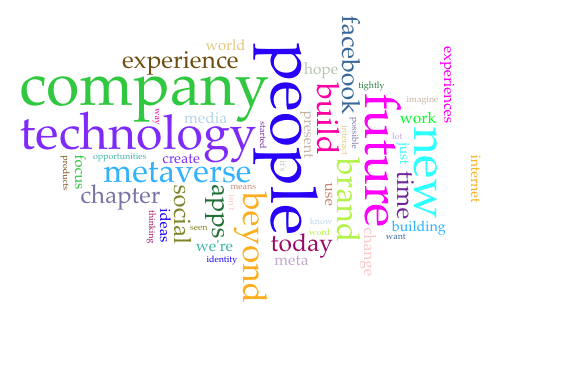In a world where the digital landscape is constantly evolving, one name has once again taken center stage: Mark Zuckerberg. The tech mogul’s announcement of Meta, a groundbreaking rebranding of his social media empire, has sent shockwaves throughout the tech industry and beyond. But what exactly does this transformation entail, and what are the implications for the future of our online lives? In this news story, we embark on a comprehensive analysis of the content of the video introducing Meta by Mark Zuckerberg, delving into the intricate details and profound significance of this pivotal moment in the digital age.
General questions:
What evidence does Zuckerberg provide to support his claims about the future of Meta?
- How does Zuckerberg address potential criticisms or concerns about the new Meta platform?
- What expertise or authority does Zuckerberg have to speak on this topic?
- How does Zuckerberg’s tone and body language affect his credibility?
New brand strategy:
- How does the name “Meta” reflect the new brand strategy of the company?
- How does Zuckerberg describe the new focus of the company, and how does it differ from the previous focus on Facebook?
- How does Zuckerberg address the issue of data privacy and security, and how does this relate to the new brand strategy?
- How does Zuckerberg describe the potential benefits of the new Meta platform for users, and how does this align with the new brand strategy?

Video transcription
I believe the metaverse is the next chapter for the internet. And it’s the next chapter for our company too. I’ve been thinking a lot about what this means for our company and who we are as we embark on this journey. We’re a company that focuses on connecting people. While most other tech companies focus on how people interact with technology, we focus on building technology so people can interact with each other. One of the reasons I started Facebook was that at the time you could use the internet to find almost anything. Information, news, movies, music, shopping. Except for the thing that matters most of all: people. Today we are seen as a social media company. But in our DNA, we are a company that builds technology to connect people. And the metaverse is the next frontier. Just like social networking was when we got started. Facebook was born in a specific time and place. A college campus. The web. It was what we could build at the time to put people back into our experience of technology. But connecting was always much bigger. From way earlier on, I remember sitting in middle school classes sketching in my notebooks, ideas that I wanted to code when I got home. And even though I didn’t have the skill or technology to build it yet, it was always clear that the dream was to feel present with the people we care about. Isn’t that the ultimate promise of technology? To be together with anyone, to be able to teleport anywhere, and to create and experience anything?
Yet here we are in 2021 and our devices are still designed around apps, not people. The experiences we’re allowed to build and use are more tightly controlled than ever. And high taxes on creative new ideas are stifling. This is not the way that we are meant to use technology. The metaverse gives us an opportunity to change that if we build it well. But it’s going to take all of us, creators, developers, companies of all sizes. Together, we can finally put people at the center of our technology — and deliver an experience where we are present with each other. Together we can create a more open platform — with more ways to discover experiences and more interoperability between them. And together, we can unlock a massively bigger creative economy.
I know the internet story isn’t straightforward. Every chapter means new voices and new ideas. And yes, there will be challenges and risks and disruption of established interests. But there will also be opportunities and benefits that we can’t even imagine yet. For connection, for creation, for learning, and joy. We’ll all need to work together from the beginning to bring the best possible version of this future to life. A future where with just a pair of glasses, you will be able to step beyond the physical world and into the kinds of experiences that we have talked about today.
I’ve been thinking a lot about our identity as we begin this next chapter. Facebook is one of the most used products in the history of the world. It is an iconic social media brand. But increasingly, it just doesn’t encompass everything that we do. Instagram, WhatsApp, Messenger, Quest. Now Horizon, Nazaré, and more. Building our social media apps will always be an important focus for us. But right now, our brand is so tightly linked to one product that it can’t possibly represent everything that we’re doing today, let alone in the future. Over time I hope that we are seen as a metaverse company. And I want to anchor our work and our identity on what we are building towards.
The company has announced a fundamental change in their organization, separating their business into two segments: one for their family of apps and one for their work on future platforms. They have also introduced a new company brand, “Meta,” to encompass everything that they do. The company’s mission remains the same, which is to bring people together. Their apps and their brands will not change, but they will now be metaverse-first, not Facebook-first. As their new brand starts showing up in their products, they hope people will come to know the Meta brand and the future that they stand for. The word “meta” comes from the Greek word meaning “beyond,” symbolizing that there is always more to build. The company is excited about moving beyond what’s possible today, beyond the constraints of screens, distance, and physics, towards a future where everyone can be present with each other, create new opportunities, and experience new things. They hope to dedicate their energy to this future more than any other company in the world, and if people want to see this future, they can join them because the future is going to be beyond anything we can imagine.
Analysis of the message
The company has announced a fundamental change in their organization, separating their business into two segments: one for their family of apps and one for their work on future platforms. They have also introduced a new company brand, “Meta,” to encompass everything that they do.

The company’s mission remains the same, which is to bring people together. Their apps and their brands will not change, but they will now be metaverse-first, not Facebook-first. As their new brand starts showing up in their products, they hope people will come to know the Meta brand and the future that they stand for. The word “meta” comes from the Greek word meaning “beyond,” symbolizing that there is always more to build. The company is excited about moving beyond what’s possible today, beyond the constraints of screens, distance, and physics, towards a future where everyone can be present with each other, create new opportunities, and experience new things. They hope to dedicate their energy to this future more than any other company in the world, and if people want to see this future, they can join them because the future is going to be beyond anything we can imagine.
While the text presents a compelling vision for the future of technology and Meta’s role in it, it does not address some of the concerns and criticisms that have been raised about the metaverse. Some critics argue that the metaverse could exacerbate existing inequalities and create new ones, particularly around access, power, and ownership. Others worry about the potential negative effects on mental health and privacy.
Additionally, the text does not address some of the controversies that Facebook, now Meta, has faced in the past, particularly around misinformation, hate speech, and political polarization. Some critics argue that these issues are inherent to social media and could also be present in the metaverse.
While the text presents a compelling vision for the future of technology and Meta’s role in it, it does not address some of the potential risks and controversies associated with the metaverse, nor does it acknowledge some of the issues that the company has faced in the past.



